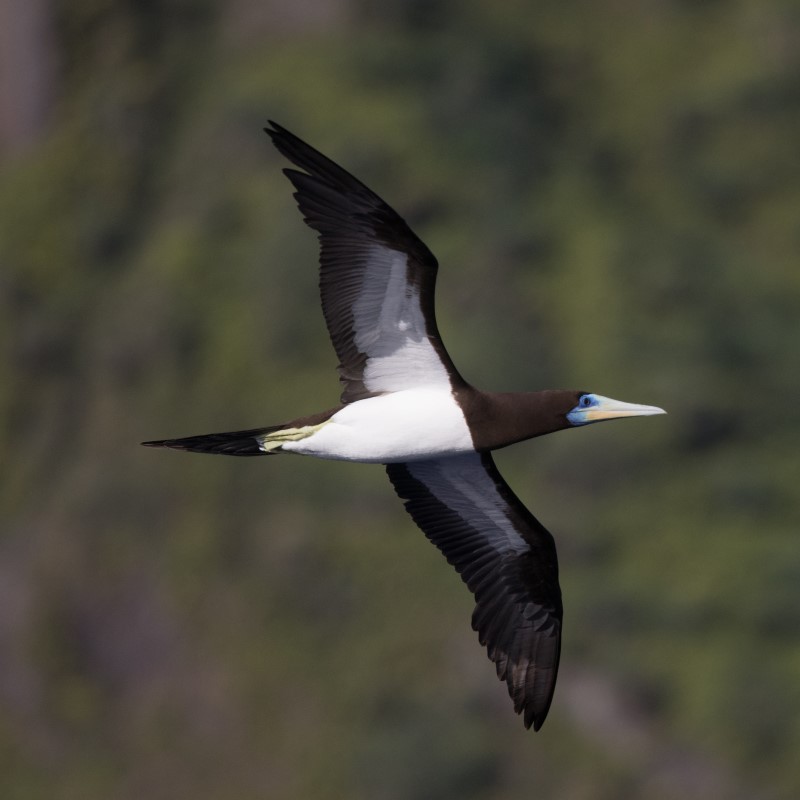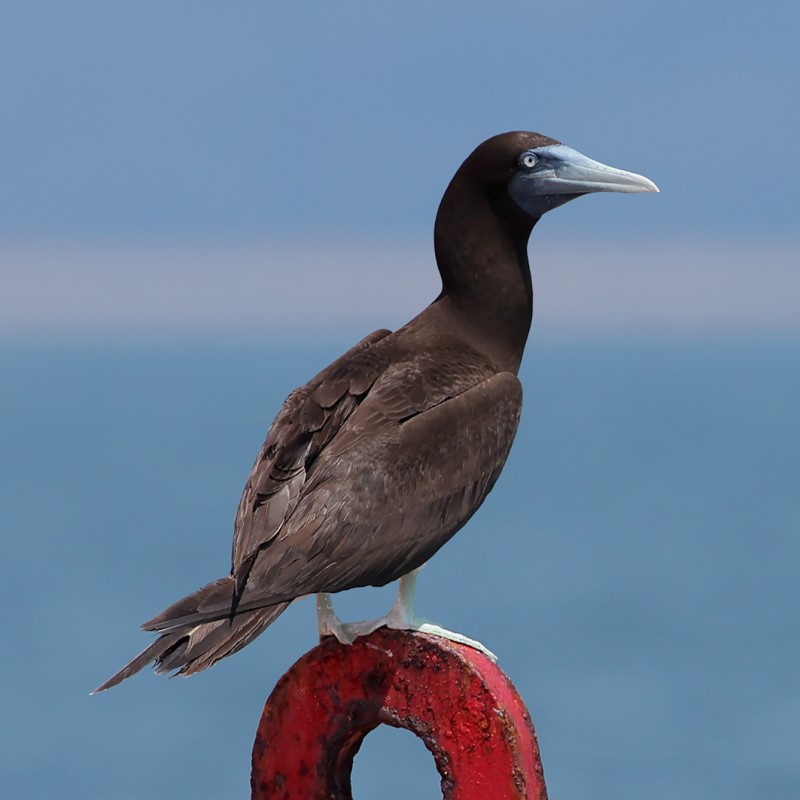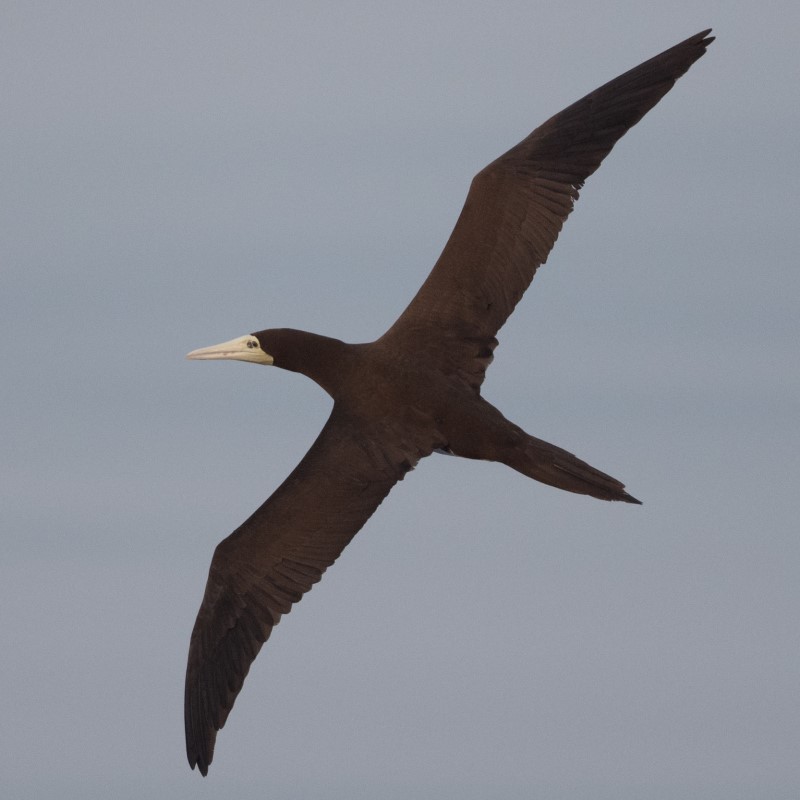Brown Booby Sula leucogaster 褐鰹鳥
Category I. Rare visitor to sea areas, mainly April to August.
IDENTIFICATION

Jul., Japan. Yann Muzika.
64-85 cm. Distinctive bullet-shaped body with long pointed wings and tail. Adults have dark brown throat, chest, undertail and flight feathers contrasting with white belly to undertail coverts and underwing coverts; bill distinctively pale.

Sep. 2022, Michelle and Peter Wong. Immature.
Immatures have a duller bare parts and plumage than adults.

Aug., Japan. Yann Muzika. Adult female.
Adults from above are uniform dark brown.
Juveniles are brown overall, mottled whitish to varying extent on underparts usually with a demarcation across the lower breast, while the underwing coverts are greyish, paler than underwing, and the bare parts usually greyish.
VOCALISATIONS
Nearly silent at sea (Schreiber and Norton 2020).
DISTRIBUTION & HABITAT PREFERENCE
All records have occurred at sea, mainly in southern waters, but there are single records in Tolo Channel and of a sick bird on Lamma.
OCCURRENCE
The first record was of an adult off Cape D’Aguilar on 28 May 1995 (Pearse and Lewthwaite 1996). Since then, it has occurred an average of once in two years from 3 February to 2 November, with approximately half the records in April and May. Most records are of immatures. Storm-blown birds rarely occur, unlike Red-footed Booby.
BEHAVIOUR, FORAGING & DIET
No observations.
RANGE & SYSTEMATICS
Breeds on islands over a large latitudinal spread between 45oN and 30oS through much of the Indian, Pacific and Atlantic Oceans, dispersing to surrounding seas on the non-breeding season (Schreiber and Norton 2020). In China occurs in offshore waters as far north as Shandong (Liu and Chen 2020).
Four subspecies are recognised, of which S. l. plotus occurs from the Red Sea east through the Indian Ocean to the central Pacific and is presumed to occur in HK. The remaining three subspecies occur in the Atlantic and Central America.
CONSERVATION STATUS
IUCN: Least Concern. Population trend decreasing.
Liu, Y. and Y. H. Chen (eds) (2020). The CNG Field Guide to the Birds of China (in Chinese). Hunan Science and Technology Publication House, Changsha.
Pearse, J. N. and R. W. Lewthwaite (1996). Brown Booby: the first record for Hong Kong. Hong Kong Bird Report 1995: 112-115.
Schreiber, E. A. and R. L. Norton (2020). Brown Booby (Sula leucogaster), version 1.0. In Birds of the World (S. M. Billerman, Editor). Cornell Lab of Ornithology, Ithaca, NY, USA. https://doi.org/10.2173/bow.brnboo.01

